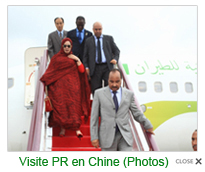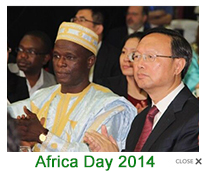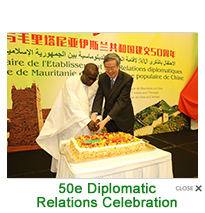|
|
|
||||||||||||||||||||||
 |
||||||||||||||||||||||
 |
||||||||||||||||||||||
|
||||||||||||||||||||||
| MINING / OIL AND GAS / ENERGIES / STRATEGIC REFORMS | ||
| MINING | ||
 |
||
| The Sector development strategy. The assigned objectives to the sector are as follows |
||
 |
•Improving the geological infrastructure •Availability of varied and reliable data bases (mapping, environmental and geological researches & studies etc. |
|
| •Integration of the sector to the economy •Strengthening institutional capacity •Mining Safety and Preservation of the Environment pollution A Mining Heaven •Gold geothermal (green rocks, shear zones)- BIF, hosting deposits of iron and gold - magmatic sulfide deposits (Ni, Cu, PGE) in the ultra basic complex and komatites - chromate + EGP in the serpentinites . •Diamonds in kimberlitic and other gems. •Pegmatite with rare metal (Li, Be, Ta, Nb, Th, U, Sn, W). •Massive volcanic deposits of sulfide (VHMS) (Cu, Zn, Pb, Au, Ag). •Deposits of pegmatite. •Ornamental stone. •Deposits of Fe-oxide Cu-Au-U, P, TR, Ba, F, Ag, Mo, Co, As and Zn. •Cu, Th, U, P, F, Cu in the alkaline complex. •Vein of Au geothermal (the shear zone). •Pegmatite with rare metal (Li, Be, Ta, Nb, Th, U, Sn, W). •The veins in relation to the granite, mineralization and skarn replacement (Au, Cu etc.) •Cu hosted by the sediments (¡À Co, Ag, Pb, Zn, PGE, Au, U, V). •Cu, Au, Ni, Cr ¡À in the amphibolites complex and serpentinites . •Ni Co- in literate. •Stratiform base metals (VHMS or Sedex) (Cu, Pb, Zn, Au, Ag). •Stratiform metals base in the shallow marine sediments (Pb, Zn, Cu, Co, Ba) - phosphate and U in shallow marine sediments. •Deposits of sandstone-type U in the continental red beds. •Placer deposits (Au). •Oil. •Underground water. •Gypsum, salt and suffers from sabkha - sedimentary phosphoresces. •Ti and Zr in the heavy mineral sands. •Deposits of sandstone-U deposits ¨C oil. •Underground water. Mauritania also has many other indices such as peat, suffer, lead, zink, chromium, manganese black sands, uranium, rare earths, beryllium and lithium, and a potential of building materials (Grainer, sand, etc. ...) Industrial minerals and stones (gemne) ornamental stones) and various substances (clay, limestone, kaolin dolman ... etc). |
||
OIL AND GAS |
||
 |
||
| The legal framework 1.The Petroleum Code of 1988 which governs the activities in research and exploitation of hydrocarbons 2.The Production Sharing Contract in 1994 3.The 2004 decree establishing the simpler tax system in favor of the oil industry 4.Ordinance 2006-008 of 4 April 2006 setting up a national oil revenue; 5.Study on revising the legal framework for oil in developing a modern petroleum code, leaving the order of 88-151 on 13.11.1988 hydrocarbon raw and model of the standard production-sharing; 6.Study on the drafting of a law on management of oil revenues Identity of operators in the sector •BRIMAX Petroleum •International Ltd •BARAKA •CNPCI Mauritania •DANA Petroleum Plc •IPG.SA, Nouakchott •REPSOL YPF E & P •TOTAL E & P •WINTERSHALL •PETRONAS •Zaver Petroleum Gulf •LimitedGulf Ltd •Tullow Oil •The Group A. S. B •ENERGY 4M •Gaz de France •HI-TECH Petroleum •Blue Chip |
||
| ENERGIES | ||
 |
||
| Sector Overview
Electricity: - largely in deficit Cv: 54% 3% urban and rural - 3.4% of domestic energy; Oil and Gas: - Dependence of imports - severe difficulties in the supply and distribution - Gas: 9% of domestic energy; Wood and Charcoal: - Significant environmental impacts, - 80% of the national energy balance, - 87% of household energy consumption; New and renewable energy: - Very strong potential solar and wind; - One of the best deposits in Africa; Traces in the domestic energy. National Market and sub-regional demand: - Current available offers: 76MW (thermal); - Low satisfied request: 54% urban and rural 3%; - Important and accessible sub-regional market: major shortfall in Mauritania as well as in neighboring countries (Mali and Senegal) |
||
| Strategic reforms | ||
| •Removing the monopoly of the electricity provision services on the national territory; •Creating a regulatory framework encouraging the private sector participation in the provision of electricity services; •Preparation of the conditions of the SOMELEC privatization (serving 20 cities and 83% of urban population); •Establishment of two strategic partners of private investors, responsible for promoting the PPP; •Electrification Development Agency; •Rural (ADER) - 2000 - private association status - ensures the development of public and private investment in rural electrification; •Universal Access Agency to Basic Services (UAABS) - 2001 - rural and semi-urban - electrification program of 17 semi-urban localities. |
||
|
||||||||||||||||||||||||||||||||||||||||||||||||||||||||||||||||||||||||
|
||||||||||||||||||||||||||||||||||||||||||||||||||||||||||||||||||||||||
|
||||||||||||||||||||||||||||||||||||||||||||||||||||||||||||||||||||||||
|






